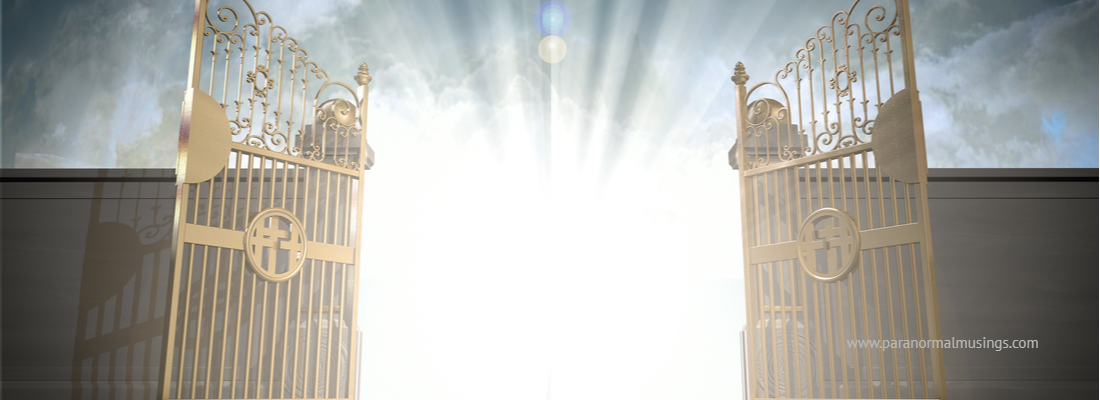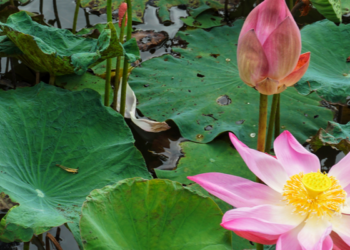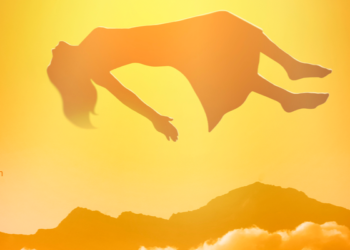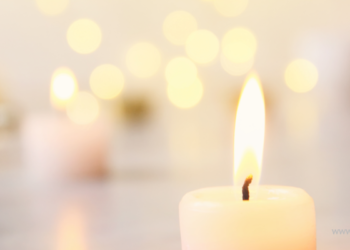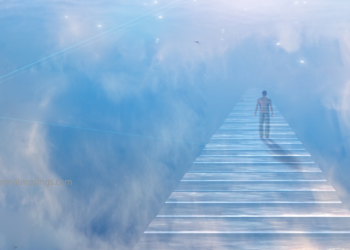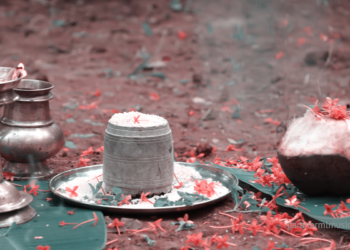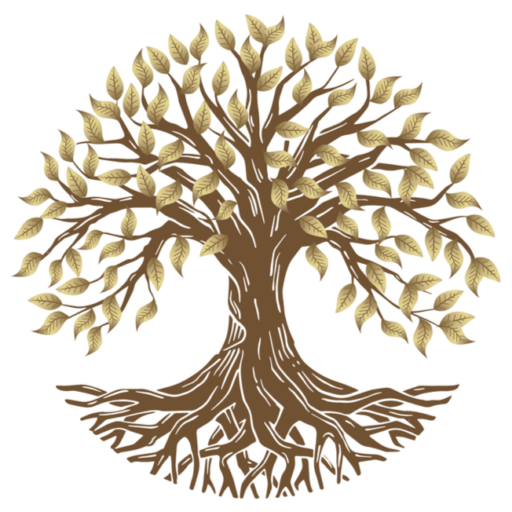Let’s understand the six lokas or planes in detail and look at the After Death Journey according to Hinduism.
Preta Loka – After Death Journey according to Hinduism
After his death, a man who has spent his life on earth in sensual indulgence lusting and obsessive passion enters the preta loka or the astral realm of gross density. He goes into a state of unconsciousness after death and wakes up in this plane.
On waking up, his cravings and desires rise again, and his appetite torments him. He feels prisoned and trapped as he wants to succumb to his pleasure instincts. But there is no means of gratification on this plane. He feels miserable and full of grief—he yearns to no avail.
These cravings and longings reside in the senses and the mind. However, you need the body as a vehicle to fulfil all the sensations.
The Hindu religion speaks about the importance of shraadh or tarpanam. These are rituals performed for our ancestors. The rituals for the dead person, the succeeding death ceremony, lasts for at least 13 days till the soul leaves the earth realm. These rites and rituals are for the appeasement of the soul to traverse peacefully.
To avoid the experience of this plane, one should lead a sattvic life of self-restraint without submitting to sensual cravings and pleasures.
According to Yoga Vasistha, the pretas are of 6 kinds. Depending on the intensity of sins committed or on the range of virtuous actions, they are graded. The sinful go through the experience of many incarnations for their endless torments. In comparison, the righteous, based on the fruits of their action, unite with the godhead. Now let’s look at the different lokas to understand the after death journey according to Hinduism
Pitri Loka or Pitru Loka – After Death Journey according to Hinduism
This place where our ancestors live is also called Chandra Loka. Those who have selflessly sacrificed and have contributed to the well being of society reside here. The ruler of this realm is Lord Yama.
Through the path of pitriyana, the souls reach this plane. When the soul dies, it rises as smoke into the night, then to the dark side of the moon for six months and six months when the sub goes to the south. From there, they go to their ancestors.
The jivas are pleased with the shradh ceremonies performed. Then their sojourn continues through ether and clouds. They come back to earth as raindrops and use grains or cereals as their halting stations.
Dwellers on this plane are bound by cause and effect as they have no knowledge of Brahman.
One can break this cycle of birth and rebirth through knowledge from scriptures and seers to become one with divinity.
Heaven or Swarga – Different Religious Views
Heaven is a place where the virtuous go after death to reap the fruits of their actions. They stay there till completion and then return to earth. On this plane, they lead princely lives with no disease and ill behaviour. They mingle with the celestial beings and gods and celestial damsels. There is no dearth of any food or beverage, and the jivas are subtle shining beings. It is a happy realm of manifestation. This is the Hindu ideology.
According to the Islamic faith, heaven is for the faithful souls who have performed virtuous deeds. . paradise is a beautiful garden, with springs, fountains and rivers flowing with water, milk, honey and balsam. The trees are laden with delicious fruits and have trunks of gold. There are chaste; beautiful damsels called Hoor al ayn with big black eyes
Bihisht or Minu is the name of Parsee paradise. The souls enjoy the companionship of huran-i-Bihisht or black-eyed nymphs of paradise, the care of whom, they say, is under the supervision of the angel Zamiyad. However, the souls have to cross the bridge Chinavat to reach heaven.
Christians believe in the garden of Eden.
Heaven and hell are still abodes for the layman
However, heaven and hell are still abodes for the layman.
The souls who go there are still bound to the earthly plane by karma.
Heaven and Hell are creations of man through his thoughts and thinking. Leading a peaceful life or a turbulent life depends on the after-effects of an individual’s actions in thought, word and deed.
A man should only strive to leave the earth plane forever by abiding in awareness and attaining Moksha.
Kingdom of heaven is within you. Seek ye first the kingdom of God…said, Lord Jesus
Hell or Naraka -After Death Journey according to Hinduism
Different opinions prevail on the sanctity and truth of the Puranas. Critics feel that there is an exaggeration of the concepts of heaven and hell. Heaven with a rosy picture of grandiose while hell as a place of punishment and suffering.
However, only the wise understand the underlying meaning mentioned in the Puranas. Saints and sages have compiled these scriptures after god realisation.
Till man becomes wise through sadhana tapas and learning, he cannot get cleansed of his ignorance and become pure. The man keeps transcending through different emotions and natures. He keeps shuttling and swinging between nobility and his animal nature. Based on external stimuli, his gamut of emotions ebb and flow.
The Samskaras Govern a Mans world and life
Man has to attain clarity in dealing with others’ behaviours and tide over the gross towards subtler aspects of divinity. The Samskaras govern a Mans world and life. Man is a creation of myriad emotions reflecting in various personality traits. To get the best behaviour from man, sages knew the right way would be through reward and punishment. Therefore they came up with the concepts of Swarga and Naraka. The righteous souls or jivas are bound towards heaven after death and the immoral or evildoers towards hell.
By portraying graphic descriptions and dire consequences of punishment, the sages extol the theory of cause and effect. It is made very clear that no one can escape the clutches of nature either in this birth or the next, or the next. Balance of deeds will be met at some time or another. Our returns are based on our investments. No one can be scot-free.
Hell and heaven maybe fictional mythological abodes
Hell and heaven maybe fictional mythological abodes, but a rationalist and wise person understand Murphy’s law of action and reaction. The diseases and illness we suffer are based on the actions of our previous lives and our relationship with our bodies. Hell and heaven, a life of misery or bliss in the present life in itself, is based on our mind and thoughts.
Mohammedans and jews speak of different levels of suffering in hell based on the sins committed.
Christians believe in purgatory or an eternal hell of no return. However, this seems to be far from true as there has to be redemption. For a finite cause, there cannot be an infinite effect.
The Hindu scriptures consider lord Yama as the ruler of hell assisted by Chitragupta or maintainer of records. The soul does not recall the punishments in hell when it is reborn. However, embedded in the conscience are the reformatory and educative teachings. This makes a man think twice before sinning. The soul is purified in the fire of hell and has clearer faculties on return.
To end a life of suffering, the mind has to be cleansed with Japa, kirtan. Fasting, tapas, charity. A life of rajas and tamas has to be renounced, and life should be sattvic. The development of virtues like tolerance, love, compassion and kindness is important to counter vices like lust, jealousy, greed, anger.
Hinduism – Karma and the Concept of Various Hells
The jivas or souls go through different levels of torture and punishment based on the sins committed. The jivas get rebirth according to their karmas.
Place of suffering called Tamisra or darkness and Andhatamisra blinding darkness is designated for people laying hands on another’s wealth, wife or children. He is not given any food or drink and is beaten with clubs. The jivas become weary and swoon.
They suffer, lose their senses and experience excessive pain.
Hell called Raurava is for jivas who grossly identify themselves with their physical body. They are subject to poisonous worms called rurus. Maharaurava is for men who indulge in passions are eaten by predatory animals.
Flesh-eating men are sent Kumbhipaka and boiled in hot oil.
Jivas who insult brahmins and spiritual men fall into Kalasutra. They burn in heat by fire and sun and go through untold misery.
Jivas who disrespect the Vedic dharma go to Asipatravana. They are made to run helter-skelter through sharp daggers and have their bodies torn apart in agony.
More Hells -After Death Journey according to Hinduism
Kings who cause untold misery to their subjects or brahmins go to Sukhara Mukha. They are crushed like sugar cane and made to shriek in distress.
Andhakupa is for men in high positions who inflict pain on the poor and oppressed. Beasts and serpents torment them.
Avichimat is for jivas who utter falsehood. They are in a world of delusion and hurled from heights over and over again.
Dandasuka is for jivas who are cruel and terrify people with authority. They are imprisoned with snakes.
Jivas who are miserly are sent to Suchimukha, a waterless hell filed with darkness and filth.
Brahmins who do not respect or follow their dharma are punished considerably.
There are other examples of hell where jivas fall into rivers of waste pus, urine, flesh, fat and mucus.
Literally, for every misconduct and wrong behaviour, there is a hell prescribed. This can also be one consciousness reflecting guilt, anger or regret.
Leading a life of piousness and focused on virtues should be the aim of man. A state of Nivritti or mental harmony is a state of Moksha.
The significance of ancestral worship plays a vital role to ease the journey of the jivas.
Asurya Loka -After Death Journey according to Hinduism
Hell or a place of demons is a destination of correction and improvement. Whether fictional or mythological, it is when man is far from the light of divinity. There is no illumination, and he is in a state of darkness. Due to the retribution of sins, man has to undergo suffering.
However, there cannot be eternal damnation or purgatory. No one can be crucified or sent to the gallows eternally. Mercy and grace have to prevail. It can keep man on an alert before any wrongdoing to know that punishment will follow.
God, the benefactor, is an embodiment of love. When we say ‘Our Father…” as in the Christian prayer or call upon God as Ma Or Amma in Hinduism, how can a parent be vengeful to a child? Forgiveness is a virtue.
We are punished or rewarded by the universe according to our actions.
Other Lokas -After Death Journey according to Hinduism
Varuna Loka is ruled by Lord Varuna, Lord of the waters. This is a world that is underwater water. the celestial sabha here too is filled with celestial beings or devas, perfumes, ornaments and a variety of plants, fruits, and birds
Kubera Loka is like the peak of mount Kailasa, filled with brilliance. The ruler here is Vaisravana (Kubera), or the Lord of wealth.
Goloka, or the world of cows, is a place of refuge for all animals. Cows are the embodiment of virtues and high energy. People who offer gifts of cow and are Virtuous go to this world. Injuring or hurting cows is considered highly sinful and karmic.
Vaikuntha Loka – ruled by Lord Vishnu, receives souls who have been worshipping the Lord as per dharma and chanting his name. there are seven entrances to this plane.
They are Bhuloka (earth plane), Bhuvarloka (Antariksha or the astral plane), Svargaloka (heaven or the mental plane), Maharloka, Janaloka, Tapoloka and Satyaloka (Brahmaloka or the world of Brahma, the Creator).
Each plane has its subtlety and destiny. The movement from each plane does not happen in space but through an increase in the vibrational frequency of a person’s consciousness. A persons intuition gets more subtle and his third eye opens. His divinity gets more profound. The individual can manifest by mere Sankalpa or wishing. He can read and sense auras and know the past and future. He is gifted with clairvoyance.
Yamas Abode – The City of Justice -After Death Journey according to Hinduism
King of justice Lord Yama resides in a bejewelled city effulgent and impregnable. It is full of palaces and mansions and has four gateways.
Viswakarma, the architect of the universe, created this city. Chitragupta, the recorder and accountant of all deeds, also resides here.
There is an eastern gate paved with jewels and parijata trees. Men of virtue brahmins, sages devotee of lord shiva, those who have done work of charity and selfless service pass by this gate. They assemble as the righteous
The northern gate is paved with yellow sandalwood. Those well versed with the Vedas and worshippers of Durga and the sun god join the assembly of righteousness through this gate.
The western gate welcomes devotees of Lord Vishnu and Lakshmi for those who chant the Gayatri mantra. Those who perform shraadh and maintain vairagya pass through this gate. Celibates and those who are faithful to their wives also go through this gate.
Lord Yama welcomes them, and they enjoy superhuman happiness till they are reborn again.
Lord Yamas court is full of sages and rishis. It is splendid and has celestial damsels. there is music playing, and there is bliss all around. The name of this place is Pushkaramalini. However, this bliss is not the sat chit Ananda of god realisation. This is of pleasurable virtuous activities.
The interval between birth and rebirth, Supra – Physical planes
People are curious to know – what transpires after death
Is there life after death
Where does the soul go
What is the time lapse for a soul to be reborn
Does it take a year or more
What happens in the subtler planes
What are they
There are many books on the subject, and our scriptures speak about the phenomenon of death
Death, birth and rebirth are all based on the theory of karma – cause and effect. However, it is surprising that people are more concerned about what happens after death instead of learning how to live. Death is a phenomenon that still many people don’t understand.
Karma balancing after death for the soul may either take a year, tens or hundreds of years. A person who has to lead a life indulging in sensual pleasures with abuse, lust and intense attachment may be reborn soon to settle scores. A person who has ill-treated his siblings or parents similarly may be reborn again quickly to understand and respect relationships and elders. There can be many such cases regarding the relationship with money, body and people.
People with good karma may spend more time in the astral planes before being reborn.
The final note is to understand the nature of the mind, ego, body and consciousness. Am individual should seek the grace of God and guru and work towards self-realisation.


